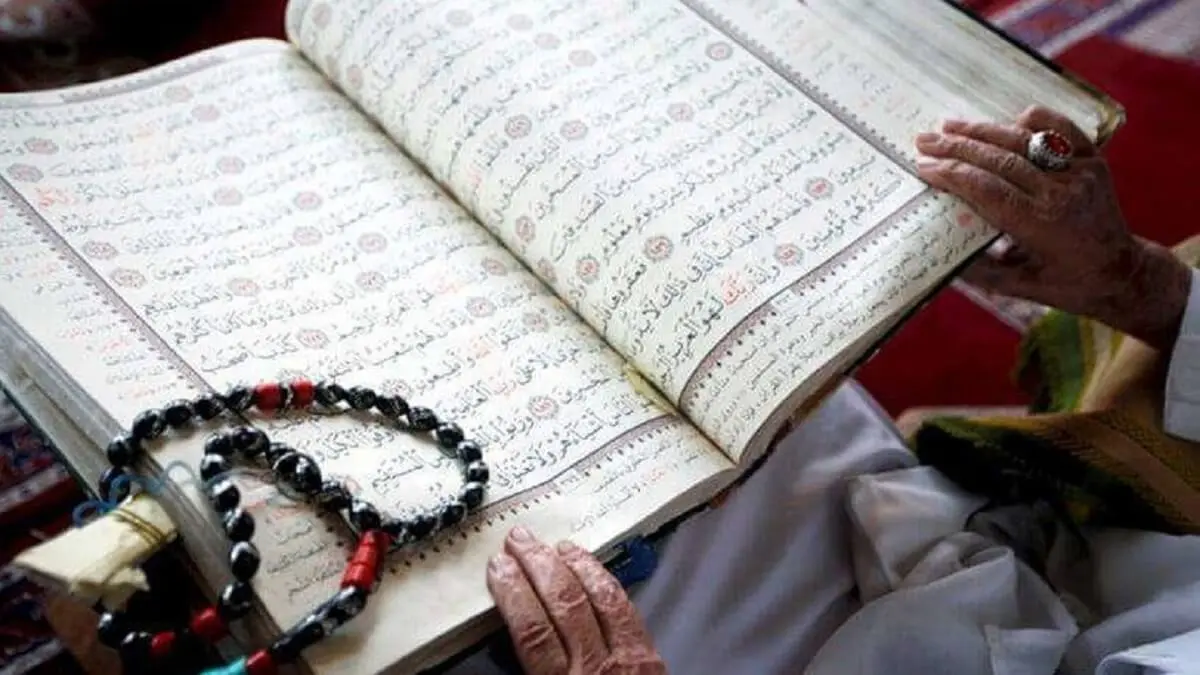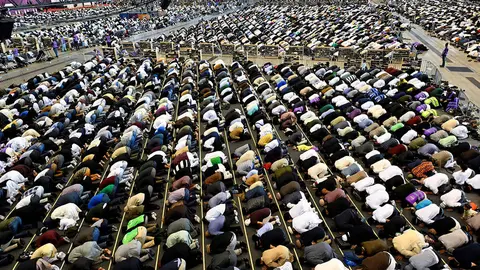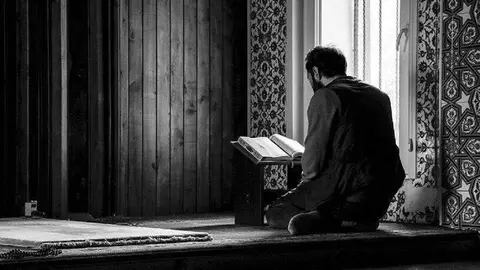The Philosophy of Islamic Teachings (22)

[For a proper understanding of this instalment, please reread instalment 21].
Three conditions (continued)
All this shows that according to Islamic principles, in order for the soul to act perfectly, it is necessary for it to enjoy the assistance of the body at all times. When man dies, the soul is separated from the mortal body, but in the intermediate state each soul receives a body that enables it to react to the conditions of that state. This body does not resemble our physical body, but is composed of light or darkness, depending on the quality of the person's actions in this life, as if the actions of man serve as a body for the soul in that state. The Holy Word of God repeatedly states that some bodies will be bright and others dark, according to the light or darkness of their human actions. This is a mystery, but not without reason. A perfect human being can enjoy a bright body in this very life, and many examples of this phenomenon are experienced in visions. This may be difficult for a person of average intelligence to comprehend, but those who have some experience of the vision state will not find a body prepared according to human actions surprising or improbable, but will appreciate the phenomenon.
In short, the body acquired according to the degree of previous actions becomes a source of reward for good and bad deeds, in the intermediate state. I(*) have experience of this. Many times, fully awake, I have had visions in which I have seen deceased persons, and I have observed that the bodies of the evildoers and the wicked were dark, as if made of smoke. In short, I have personal experience in these matters which enables me to state categorically that, as God Exalted says, every person receives after his death either a bright or a dark body. It would be wrong for man to attempt to establish such perceptions through the mere exercise of reason. It must be recognised that just as the eye is incapable of discovering a sweet taste, and the tongue cannot see, so reason is not sufficient to explain the knowledge of the afterlife, which is only acquired through spiritual visions. God Exalted has fixed various methods of acquiring knowledge of the unknown in this world. It is necessary, therefore, to seek everything through the appropriate means. Only in this way can this knowledge be discovered.
It should also be noted that, in His Holy Word, God describes as dead those who engage in vice and error, while He declares the virtuous to be alive. This is because the vital functions of those who die having forgotten God - by eating, drinking and indulging in the passions - are suppressed and they do not partake of spiritual food. They are truly dead, and their resurrection will only be for their punishment. As God the Glorious says:

"For whoever appears before his Lord as a sinner, for him will be Hell; and therein he will neither die nor live" (20:75).
But those whom God loves, do not die with physical death, for they have in themselves their sustenance.
After Barzach, there is a state of resurrection. In this state, every soul, good or bad, righteous or disobedient, will receive a visible body. That day has been chosen for the perfect manifestation of God, when all will fully know the Self of their Lord, and receive the full reward. This should not surprise anyone, for God is Exalted, and He always does His will, as He has said:

"Does not man see that we have created him from a mere drop of sperm? Yet, behold him there, become a notorious brawler! For he invents similitudes for Us and forgets his own creation. He saith: "Who can give life to the bones when they are decayed? Say to them, "He who created them the first time will bring them back to life, for He knows perfectly well every kind of creation." (36:78-80)

"Hath not He Who created the heavens and the earth the power to create others like them?" Yea! for He is indeed the Supreme Creator, the All-Knowing. Verily, when He intends to do a thing, His command is only to say: "Be!" and it begins to be. For Holy is He, in Whose hand is the kingdom of all things; and to Him shall all be returned." (36:82-84).
In these verses God the Glorious points out that for Him nothing is impossible. Does He who first created man from a humble drop not have the power to create man anew?
An ignorant person might object that since the third state, the state of resurrection, comes only after a long period of time, the state of Barzach would be nothing but a useless dungeon for the good and the bad. But this is a misconception based on ignorance. The Book of God alludes to two states of reward for good and evil deeds, one of which is the state of Barzakh, in which all will receive their reward, though not as frankly as in the third state. The wicked will immediately enter Hell, and the virtuous will find their repose in heaven immediately after their death. Several verses of the Holy Quran allude to the fact that every person, immediately after his death, will find the reward of his deeds. For example, with regard to the virtuous, it says:

"It was said to him, "Enter Paradise"". (36:27);
And concerning a wicked man also it was said to him:

"He will look and see it in the midst of the Fire." (37:56)
This verse alludes to two friends, one of whom entered Heaven, and the other entered Hell. The one who entered Heaven was anxious to know how his friend was doing. He was shown that his friend was already in the centre of Hell (37:56). Thus, it is seen that reward and punishment come into effect immediately, with the damned going to Hell, and the deserving going to Heaven. But then there is a day of great manifestation, chosen by the great wisdom of God. God created man to be recognised through His attribute of creation. Then He will destroy all, that He may be recognised for His Dominion over all things. Afterwards, He will gather all, after granting them perfect life, so that they may recognise Him by His power.
(*) - He refers to himself, Hazrat Mirza Ghulam Ahmad of Qadian, India, 1835-1908, the Holy Founder of the Ahmadiyya Muslim Community, who is the author of this exposition, the English translation of which we present in these instalments.
(lpbD) - peace and blessings of God be upon him.
(To be continued in the next installment, number 23, which will deal with the second and third perceptions of the Holy Quran on the Hereafter).




